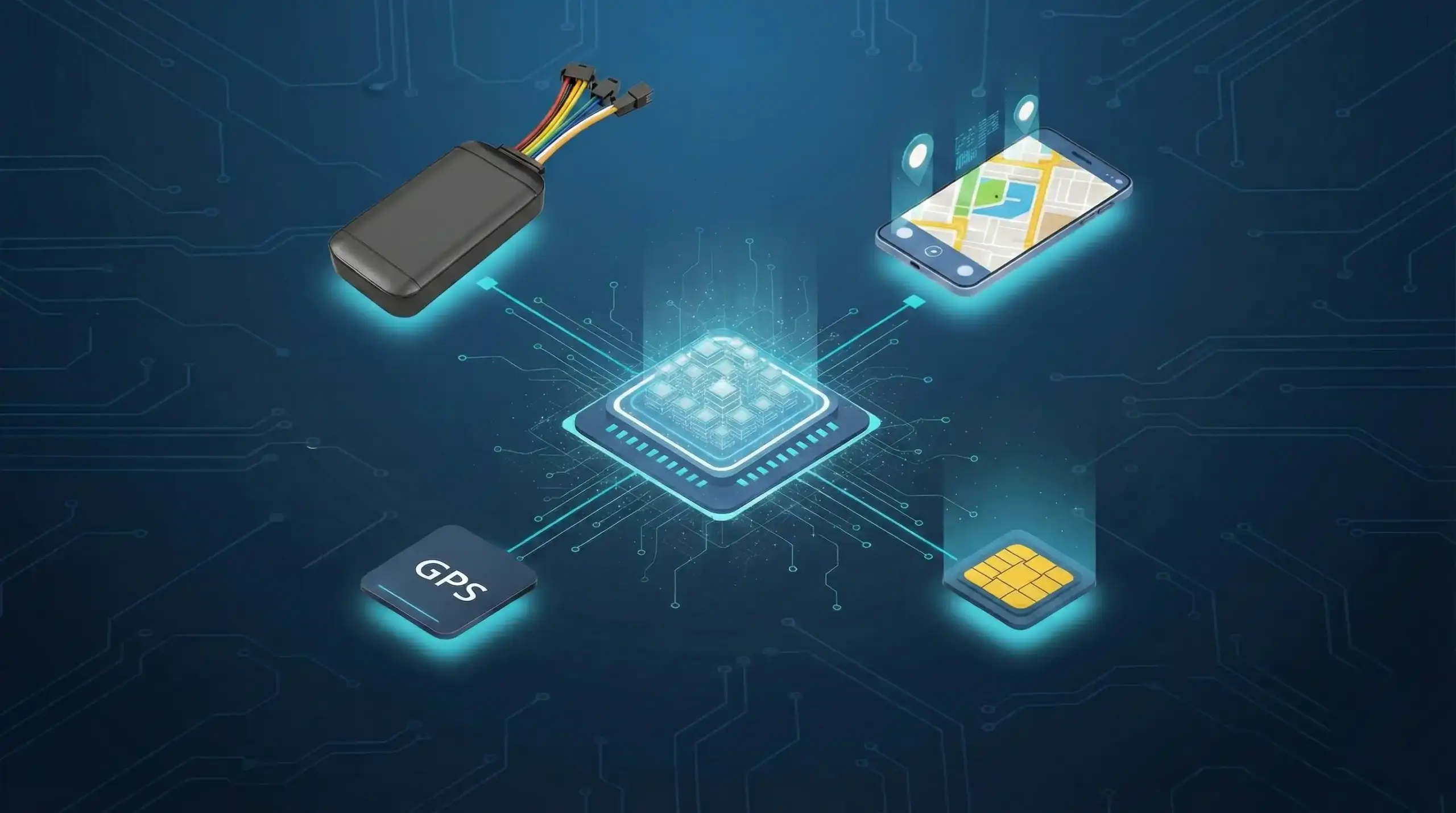Comprender los desafíos de seguridad del flete
La industria de la carga encuentra varios desafíos de seguridad que afectan significativamente la eficiencia operativa y la rentabilidad general. Uno de los problemas más apremiantes es el robo, que puede tener lugar durante el tránsito o en las instalaciones de almacenamiento. Según la Asociación de Protección de Activos de Transporte (TAPA), El sector de carga informó pérdidas superiores $200 millones en robo de carga dentro de un solo año en ciertas regiones. Esta estadística alarmante destaca la vulnerabilidad del transporte de carga y subraya la necesidad de medidas de seguridad sólidas.
El acceso no autorizado es otra preocupación crítica. La carga inadecuadamente asegurada puede provocar manipulación o robo, Poner a las empresas en riesgo. La adopción del monitoreo en tiempo real puede ayudar enormemente a administrar y mitigar estas amenazas de seguridad.. Implementando una plataforma de seguimiento de GPS de ProTrack, Las empresas obtienen control centralizado sobre sus activos, permitiéndoles monitorear su carga de cerca. Además, El uso de los rastreadores GPS de ProTrack mejora la visibilidad durante el tránsito, Permitir que las empresas respondan inmediatamente a cualquier movimiento no autorizado.
Pérdida de carga, si se debe al robo, daño, o mal ruidoso, plantea importantes desafíos financieros para las empresas. Los informes de la industria indican que los errores logísticos pueden provocar pérdidas al alza de 5-10% de los márgenes de beneficio de una empresa. El daño a la reputación y la pérdida de la confianza del cliente pueden ser igualmente perjudiciales, A medida que los clientes buscan socios confiables para sus necesidades de transporte. Es probable que las empresas que implementan medidas preventivas e invierten en tecnología destinadas a mejorar la seguridad de la carga.. La adopción de soluciones rentables, como la tecnología Smart E-Lock, junto con los sistemas de monitoreo en tiempo real, proporciona un enfoque multifacético para abordar estos desafíos persistentes, En última instancia, salvaguardar los activos y mejorar la integridad operativa.
Introducción a la tecnología Smart E-Lock
La tecnología Smart E-Lock representa un avance fundamental en el dominio de la seguridad de la carga. A diferencia de los mecanismos de bloqueo tradicionales, Los locos electrónicos inteligentes emplean una combinación de tecnologías de vanguardia como la identificación de radiofrecuencia (RFID), Sistema de Posicionamiento Global (GPS), Y el Internet de las cosas (IoT) Para proporcionar una mejor protección e integración en los marcos logísticos modernos. Estas cerraduras no solo segura la carga sino que también facilitan el monitoreo en tiempo real del transporte de carga, ofreciendo ventajas significativas para los operadores de logística.
El funcionamiento interno de los locos electrónicos inteligentes es complejo, Confiar en las etiquetas RFID para transmitir datos con respecto al estado del bloqueo. Esta comunicación permite a los gerentes de flota rastrear sus activos de forma remota a través de un sistema de control centralizado, Asegurar que cada envío sea monitoreado desde el envío hasta la entrega. Además, La integración de la tecnología GPS permite a los operadores identificar la ubicación precisa de la carga en cualquier momento. Dichas capacidades son cruciales para mitigar los riesgos asociados con el robo o la manipulación, mejorando así la eficiencia operativa.
Una de las características destacadas de Smart E-Locks es su capacidad para proporcionar alertas y notificaciones en tiempo real.. A través de la plataforma de seguimiento del GPS de ProTrack, Las partes interesadas pueden recibir actualizaciones inmediatas sobre la condición de su flete y la integridad del sistema de bloqueo. Este nivel de supervisión no solo es proactivo sino también rentable, ya que reduce la probabilidad de pérdida y aumenta la confianza en la cadena de suministro. Además, Las ideas procesables derivadas de la conectividad IoT permiten a las empresas optimizar sus procesos logísticos más.
Las ventajas de usar locos electrónicos inteligentes sobre métodos tradicionales se extienden más allá de la seguridad mejorada. Al adoptar esta tecnología innovadora, Las organizaciones pueden optimizar sus operaciones de transporte de carga, asegurando que sigan siendo competitivos en un panorama del mercado en constante evolución. El cambio hacia los locos electrónicos inteligentes encapsula una transformación más amplia dentro del sector logístico, Destacando la necesidad de integrar soluciones avanzadas para salvaguardar los valiosos envíos.
Implementación de la tecnología Smart E-Lock en Logistics de carga
La integración de la tecnología Smart E-Lock en las operaciones de logística de carga puede mejorar significativamente la seguridad y agilizar los procesos. Esta implementación implica varios pasos clave, incluyendo selección de hardware, instalación, e integración de software. Primero, Las empresas deben evaluar sus necesidades específicas y seleccionar los locos electrónicos inteligentes que se alinean con sus operaciones logísticas. Hay varios modelos disponibles en el mercado, y elegir uno compatible con los sistemas existentes promoverá el control centralizado sobre la seguridad de la carga.
Una vez que se selecciona el hardware apropiado, la siguiente fase es la instalación. Este proceso generalmente requiere colaboración con técnicos profesionales para garantizar que los locos electrónicos inteligentes se coloquen correctamente en contenedores y remolques. La instalación adecuada es crucial ya que afecta directamente la funcionalidad de la plataforma de seguimiento de ProTrack GPS, que funciona en conjunto con las cerraduras inteligentes para proporcionar monitoreo en tiempo real de la carga. Asegurar que la instalación cumpla con las normas regulatorias para el transporte de carga también mitigará posibles problemas legales en el futuro.
Después de la instalación, La integración del software es esencial. Es aconsejable configurar los locos electrónicos inteligentes para funcionar sin problemas con el software de gestión de logística existente. Esta integración permite a las empresas aprovechar el rastreador GPS de ProTrack de manera efectiva, Facilitar el seguimiento mejorado y el control de los envíos en tránsito. Utilizando plataformas basadas en la nube, Las operaciones se pueden simplificar, permitiendo a los empleados administrar rutas y acceder al estado de bloqueo de forma remota, Lo que aumenta la eficiencia operativa.
Mientras implementa la tecnología Smart E-Lock, Las empresas pueden enfrentar desafíos, como la resistencia a los empleados a la nueva tecnología o problemas de integración con los sistemas heredados.. Es esencial brindar capacitación y apoyo adecuados al personal., asegurando que se sientan cómodos usando el nuevo sistema. Además, Elegir una solución rentable con atención al cliente confiable puede ayudar a las empresas a adaptarse a esta innovadora medida de seguridad sin problemas. Los beneficios generales son considerables, Mejorar la seguridad de la carga al tiempo que promueve una operación logística eficiente.
Estudios de casos y aplicaciones del mundo real
La tecnología Smart E-Lock ha revolucionado la industria del transporte de carga, Proporcionar una mayor seguridad y eficiencias operativas para empresas de todo el mundo. Varios estudios de casos ejemplifican cómo las organizaciones han implementado con éxito esta tecnología, revelando no solo mejoras en la seguridad sino también un ahorro sustancial de costos y una mejor gestión de la logística a través del monitoreo en tiempo real.
Un caso notable involucra una empresa de logística líder que adoptó la plataforma de seguimiento de ProTrack GPS para salvaguardar su flota. Integrando los locos electrónicos inteligentes con el rastreador GPS Protrack, La compañía logró el control centralizado de sus activos. Esta integración permitió el monitoreo en tiempo real de los envíos de carga, reduciendo la tasa de robo por encima 40% dentro de los primeros seis meses de implementación. La capacidad de bloquear y desbloquear los envíos de forma remota utilizando la plataforma de seguimiento de ProTrack GPS operaciones simplificadas y una mejor responsabilidad entre el personal, En última instancia, mejorando la seguridad general de la carga.
Otro ejemplo proviene de una compañía de transporte que se especializa en bienes de alto valor.. Después de una serie de incidentes de robo, La compañía invirtió en locos electrónicos inteligentes combinados con sistemas de monitoreo en tiempo real. Como resultado, La organización registró una disminución en los incidentes de robo de carga. 30%. Utilizando esta tecnología, Aseguraron la toma de decisiones basadas en datos con respecto a la planificación de rutas y las evaluaciones de riesgos, que condujo a un enfoque más rentable para el transporte de carga.
Además, Un tercer estudio de caso revela un minorista que implementó Smart E-Locks para asegurar su cadena de suministro. Con capacidades de control centralizadas, El minorista pudo monitorear la carga en tiempo real, conduciendo a ambos 25% Reducción de las pérdidas de carga y mayor eficiencia en la logística. Estos estudios de caso ilustran colectivamente que los e-Locks inteligentes, aumentado por una sólida plataforma de seguimiento, puede mejorar significativamente la seguridad del transporte de carga, demostrar ser un activo invaluable para salvaguardar los activos y aumentar el rendimiento operativo.









